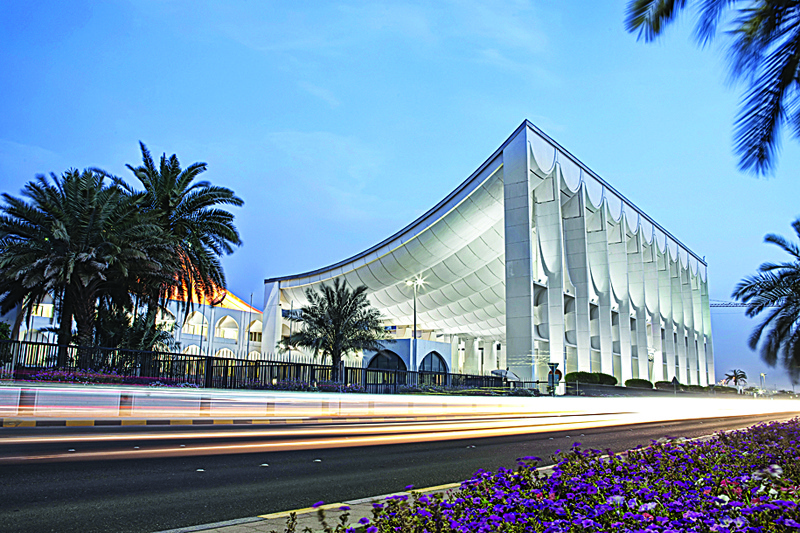 The National Assembly.
The National Assembly.By B Izzak
KUWAIT: The long-awaited national dialogue was launched yesterday with closed-door meetings between the government and representatives of the National Assembly, amid mixed reactions and hopes. HH the Prime Minister Sheikh Sabah Al-Khaled Al-Sabah, Minister of Islamic Affairs Essa Al-Kandari and Minister of State for National Assembly Affairs Mubarak Al-Harees represented the government.
The invitation for the dialogue was issued by HH the Amir Sheikh Nawaf Al-Ahmad Al-Jaber Al-Sabah with the aim to resolve all political problems rocking the country, which have paralyzed the political scene for almost a year. No statement was issued by the government and the lawmakers on the outcome of the first session of the dialogue, but local media cited parliamentary sources as saying a positive atmosphere prevailed.
"An optimistic atmosphere prevailed and all parties are keen to emerge from the deadlock," the local Al-Oula24 TV quoted parliamentary sources as saying following the session. The sources added the session lasted for four hours and tackled issues including a general pardon, freedoms, economic reforms, the electronic crimes law and protecting the prime minister against grillings, adding that a second session has been set for tomorrow, according to the TV channel.
But not all opposition members were happy about the meeting, amid signs of divisions among their ranks. Former opposition MP Faisal Al-Mislem, who is among several ex-MPs and activists living in exile in Turkey, criticized the "ill-prepared" dialogue. "Today, an ill-prepared and badly-represented dialogue starts" Mislem said on Twitter. "What can we hope from dialogue when its powerful parties aim to include MPs in the Cabinet, maintain Marzouq (Al-Ghanem) as speaker and fragment the (opposition) bloc of 31 MPs," the former lawmaker said.
But former minister and MP Ali Al-Omair said the dialogue should herald a new chapter between the two authorities - the government and Assembly - and lead to eliminating disputes and achieving a political breakthrough. He said MPs should insist on conveying several messages to the government, mainly its failure to execute the development plan, the absence of government priorities, low representation of MPs in Cabinet and failure to tackle economic, education and health issues and counter corruption.
The government should also send messages to the lawmakers, mainly to reduce the number of grillings, give ministers enough time to carry out their responsibilities and set out points of joint understanding to avoid tensions, Omair added. Meanwhile, 26 non-profit organizations said in a joint statement that the national dialogue should discuss pressing reforms and pave the way for holding a larger national conference to resolve local issues.










